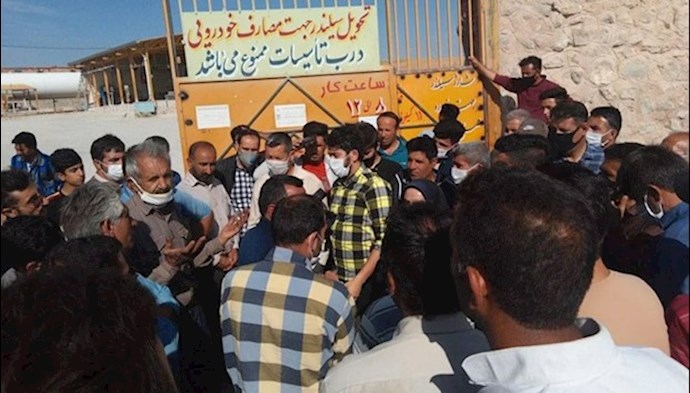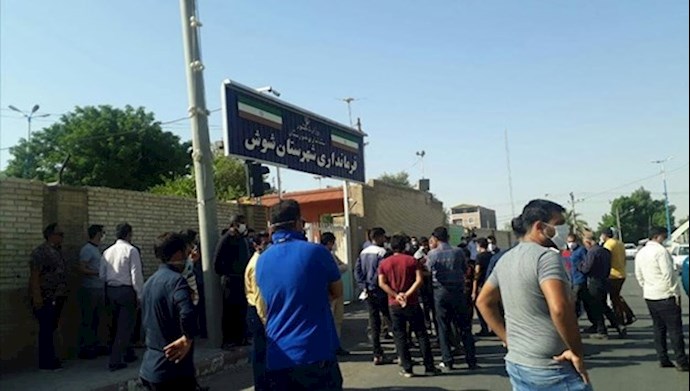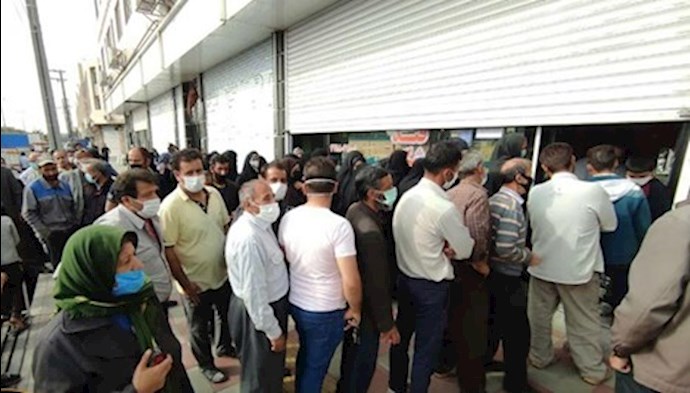Reporting by PMOI/MEK
Iran, October 31, 2020—Despite the dangerous Covid-19 situation in the city of Damghan, many of people were seen standing in line for hours to buy vegetable shortening.
Lack of vegetable shortening in the city of Damghan forced people take to the streets despite the threat of contracting Covid-19.
After days of shortage in vital goods, one of the chain stores distributed a limited amount of cooking oil on Tuesday, which immediately drew a large crowd of locals to the location. It is worth noting that due to lack of government support, many of the people don’t have access to face masks and other protective gear and have no other choice than to expose themselves to the virus to get their basic needs.
A few days ago, another chain store distributed tires, which also drew similar crowds.
In this regard, a state-run media outlet wrote, “These days, while we are facing an increasing number of people infected with Covid-19, negligence by officials and the currency crisis have caused long queues of people who want to receive basic goods such as oil in the southeast of the country… Meanwhile, the currency crisis is like a fire under the ashes, because according to the authorities, the currency is the main cause of the decline in oil production and the shortage in the market.”
Protests to gas and oil shortage in Bojnurd

People in Bojnourd, northeast of Iran, are protesting the lack of gas and oil in the city
On Thursday, October 29, locals in Bojnourd, northeast Iran, protested the lack of gas and oil in the city due to cold weather.
“They do not give oil and gas to poor people and they say you should install oil and gas pipe. But the poor people of this area cannot afford it. Only a few wealthy families have gas and oil pipelines,” one of the protesters said.
One of the citizens of the county said, “The price of a 12 kg gas cylinder, which was 80,000 rials until two months ago, is now 120,000 rials. And this is only if [the vendors] agree to sell. Also, the price of kerosene was 3,000 rials per liter. But now it is sold at varying prices and without coupons. And they often don’t even sell and tell us you have to install pipelines.”
It is worth noting that in autumn and while the weather in Bojnourd and North Khorasan province is getting colder every day, the locals are facing many difficulties.
But rather than helping the people, government officials are interested in looting the population by not giving them oil and gas and forcing them to pay for pipelines.
Haft Tappeh workers resume protests

File photo: Protest by Haft Tappeh Sugarcane Company workers
On Thursday, October 29, a group of workers from different sections of the Haft Tappeh Sugarcane Company held a rally in this company. Haft Tappeh is located in Shush, Khuzestan province, and is the largest agro-cultural complex of Iran. The workers of the company have been regularly protesting delayed wages, poor working conditions, and unstable contracts. During Thursday’s rally State Security Forces intervened and arrested four Haft Tappeh labor activists.





